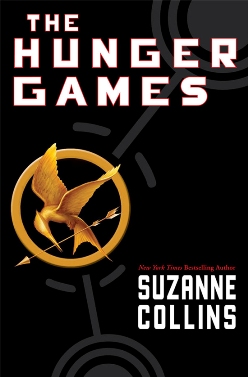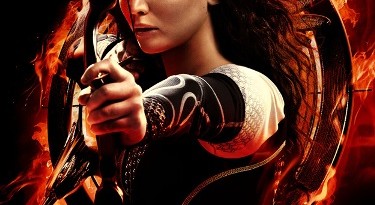Drawing In Readers with Point of View
Looking at books that are making enough of a splash with readers that they’re getting big screen versions as well, an aspiring writer might assume first-person point of view is the way to go. And while that use of POV can be effective, the choice of which POV to use is a bit more complicated than just mimicking some of these successful novels.
Water for Elephants, a New York Times bestseller, opened this week on the big screen. The book is told from the first-person perspective of the male protagonist, Jacob Jankowski, a 91-year-old man retelling his adventures in a Depression-era circus. Robert Pattinson plays Jacob’s younger self, and of course will be easily recognizable (despite the character’s name) to fans of Twilight, a series of books told from the female protagonist’s point of view.
Twilight has dominated the box office, despite the long-held belief in the movie industry that female-centric movies cannot carry big numbers. In part, the success of Twilight has much to do with the fact that the female fans of the series were already invested in the story of Bella and her monstrous suitors. This is the same phenomenon I believe that will carry the Hunger Games trilogy – a much better-written book series – to box office success, as well. Through first-person interaction in the story, readers have become so invested in the story and the heroine that they will go in droves, and repeatedly, to see Katniss’ adventure played out on the silver screen.
Despite the success of books like Twilight and Hunger Games, though, the use of first-person POV is rife with roadblocks, especially for novice writers. This is because, as a writer, you always have to be aware of three things: the story you know is truly happening (omniscient), the story you’re telling your readers (point of view), and the meanings the readers may infer from their reading of the text (unique reader perspective). Sometimes the aim is to use point of view and reader perspective to misdirect; other times the aim is to, as the saying goes, beat the reader over the head with the truth. All of this gets a lot more complicated, though, when you’ve only got one first-person POV narrator to tell the entire story.
 I honestly can’t say much about how Stephenie Meyer did (or didn’t) work her way around those difficulties, because I couldn’t get past the basic flaws in her writing. Instead, I’ll focus on how Suzanne Collins in her Hunger Games trilogy used first-person POV quite effectively, and where it provided some speed bumps for readers.
I honestly can’t say much about how Stephenie Meyer did (or didn’t) work her way around those difficulties, because I couldn’t get past the basic flaws in her writing. Instead, I’ll focus on how Suzanne Collins in her Hunger Games trilogy used first-person POV quite effectively, and where it provided some speed bumps for readers.
Unlike Meyer, Collins is an experienced writer with television credits and previous books under her belt. That experience gave her insight into the advantages and pitfalls of point of view choices as a writer. Television is typically omniscient POV, unless narration is brought into the show to suggest that it is only one person’s telling or remembrance. I was quite interested to see how Hunger Games would be handled as a movie. Would it be Katniss reliving her life as the movie’s narrator, or the traditional omniscient perspective? From a recent interview, we know that Collins in fact insisted while the third book was still in production that she be the primary screenwriter for the movies. This decision specifically related to protecting the story, because the movies would be told outside of Katniss’ limited POV and Collins needed to ensure nothing in the movie conflicted with her own intentions for the books.
Although the first-person POV from Katniss was generally very effective throughout the Hunger Games trilogy, in my opinion the biggest weakness in the series came when only Katniss’ narration was available in the third book. The series develops first as an individual hero’s journey in The Hunger Games, then expands to encompass the formation of the rebellion in Catching Fire, and finally takes on the evolution of the nation as a whole in Mockingjay. What could have been a very powerful climax – watching the nation’s struggle with its own identity – lost a great deal of its emotional impact when Collins chose to remove Katniss from the major developments by incapacitating her mentally. It was an understandable storytelling decision based on the need to move the plot along, which couldn’t be done within the limited framework provided by the single point of view she had chosen to use. If I’m right and the movies are shown from omniscient POV, though, then the films could expand on the events after the attack on the capital and the story could quite possibly carry more emotional weight than the final moments of the book did.
All things considered, though, it’s hard to fault Collins for much more in the way she used POV in the series. As a writer she had chosen the series as Katniss’ story, and she didn’t waver from taking that journey with her heroine right down to the last moments, nor at the some of the storytelling choices required to get there. (In the above referenced EW.com article, Collins’ editor admitted to strongly opposing the death of one character, but Collins insisted it was necessary for Katniss’ development.)
What Collins does really well is use Katniss as an unreliable narrator, even though she’s relating the events of her own life. Consequently, the reader’s perspective is heavily shaded by Katniss’ own biases and blinders. We see her family, friends, and countrymen as she sees them. Haymitch, at first glance, is merely the town drunk, spoiled by the riches of his Hunger Games win. Early impressions tell the reader Finnick is a shallow, handsome leech of a man. But everything and everyone unfolds to be not quite what they seem.
The best example of this misdirection using first-person point of view comes from the way in which other characters interact with Katniss. In her own mind, Katniss isn’t very appealing. In fact, some fans voiced outrage at the casting of Jennifer Lawrence to play her, saying that she is too “pretty” for the character. Most women simply don’t think of themselves as pretty, and the use of first-person POV with almost no self-description physically makes it easier for women reading the book to self-insert. But if you pay attention to dialogue from Peeta and Gale, and Cinna’s actions, there’s a different message there for the reader to discover. She may not feel it about herself, but story actually does make clear the truth about Katniss’ appeal – physically and emotionally.
Collins’ very deliberate storytelling choices meant to highlight who and what each character truly is work really well. But thinking ahead to the movies, they also reveal another major drawback to first-person POV storytelling. By giving the audience a very limited picture of the world, the readers create their own. It’s a wonderful tool as a writer, but when the book moves to the screen some expectations are sure to be crushed. For Hunger Games, though, I think the fact that Collins has insisted upon a controlling say in the casting and script means that the movie adaptations will remain true to the intention of the story, and I look forward to next year.
Some time soon I’ll highlight my personal struggles with point of view choices as I embarked on writing my own novel. (First excerpts are scheduled for mid-May 2011.) Despite the popularity of first-person POV, I determined the benefits of third-person limited POV would suit the story I’m telling better in the long run.
- Hyperspace Theories: Lucasfilm’s New Era Officially Begins - January 31, 2026
- Hyperspace Theories: Two 2025 Superhero Movies Show Star Wars’ Missed Path - January 19, 2026
- Hyperspace Theories: WICKED FOR GOOD Changes for the Better - November 28, 2025












“This is because, as a writer, you always have to be aware of three things: the story you know is truly happening (omniscient), the story you’re telling your readers (point of view), and the meanings the readers may infer from their reading of the text (unique reader perspective). Sometimes the aim is to use point of view and reader perspective to misdirect; other times the aim is to, as the saying goes, beat the reader over the head with the truth. All of this gets a lot more complicated, though, when you’ve only got one first-person POV narrator to tell the entire story.”
Out of curiosity… How would you rate Harry Potter on this? Yes, the books are technically third-person, but with the exceptions of about one or two chapters at the start of a few of the books, it’s all Harry, all the time – and J.K.R. is veeeeery fond of misdirection through use of the Harry-filter. In fact, Harry’s attempts to beat his fellow characters (and by extension, the readers) over the head with “the truth” often are hilariously off the mark in retrospect. And the very language of the books is shaded by Harry’s own biases and blinders. In two particularly jarring (in a good way) instances, “Black” becomes “Sirius” when Harry learns Sirius was innocent, and “Snape” briefly becomes “Severus” as Harry watches Snape’s backstory unfold before him. (They’re that way to the point, in fact, where I was genuinely blindsided by J.K.R. CONFIRMING certain odd positions in interviews, because it’s so easy to just assume that something wonky was due to Harry’s [or another character’s] limited point of view.)
What would you say are the important differences between first-person POV and mode-locked third-person-limited POV (that is to say, third-person, but always focusing on the same person)?
Well the great thing about any POV that’s not omniscient is that you can blame the POV character for inconsistencies. Omniscient takes away the oops factor. Most importantly if you chose first person you’re in it for the long haul; you can’t decide to stick someone else’s viewpoint in to get a plot point across. (Well I guess you could but that would just be odd and weak.) Where as with third person you could write a lot from say Harry’s POV but use other characters to tell parts of the story Harry isn’t privy to. That’s the biggest difference as I see it.
For instance the story I’m telling has a central heroine but her journey can’t be realized without telling other people’s stories. They become witnesses and foils to her transformation. Too while I think it is easy for people to self-insert into first person as people often did with Katniss, I think it’s harder to get a young man to jump into that book because it’s harder to relate to. So third person, as it did for Harry Potter, opens up a few more possibilities by encouraging male and female readers to accept the book from the start.
When Rowling started HP she was a noobie to writing novels so maybe she didn’t have enough practice in working with POV to consider first person POV. I’d be curious to see if she’d design the story differently from the start to be all first person POV once she realized how much the books relied on Harry.
The beating the readers over the head with the “truth” is kind of a fun dynamic for misdirection.
Collins using first person saved her a lot of work in books two and three and possibly saved book three’s believability entirely. Most folks underestimate how difficult it is to write a battle, let alone a war. By limiting herself to Katniss’s point of view Collins managed to avoid details about tactics, troops, stratigy, you name it. I was kind of annoyed by the lack of information about the war in general but then I am a Tom Clancy fan so I’m a bit spoiled. The simplest route was in this case probably the best one overall.
This post actually made me think about the George R.R. Martin books where he does the first person point of view–but flips every couple of chapters to a “new” point of view. That way he gets to mix things up, and you get to follow other characters instead of being limited to one individual’s journey, but at the same time are invited in to a particular individuals innermost thoughts and actions.
Of course length has something to do with it as well–his books are incredibly long, so he has the luxury of making those flips.
I checked just to be sure and Game of Thrones is third person limited with a lot of internal narration so it feels like you’re inside the individual’s head. Many fantasy books are written this way and the third person is easier to get different types of readers engaged by using different characters.
POV does play a huge role in telling a story and I do think it may be a little difficult to transfer a first person POV story to a movie.
As a fantasy writer, it’s much easier to right in third person (limited or omniscient) because the scopes of fantasy stories are soo vast that if you limit it to just one character you may just be shooting yourself in the foot. You can find yourself so limited in what you can reveal to your reader. I think whwen writing you have to take into account on how big your story is. For a personal story first person may work, but if you have a whole lot of plot twists, minor conflicts, etc. going on, third person is probably the way to go!